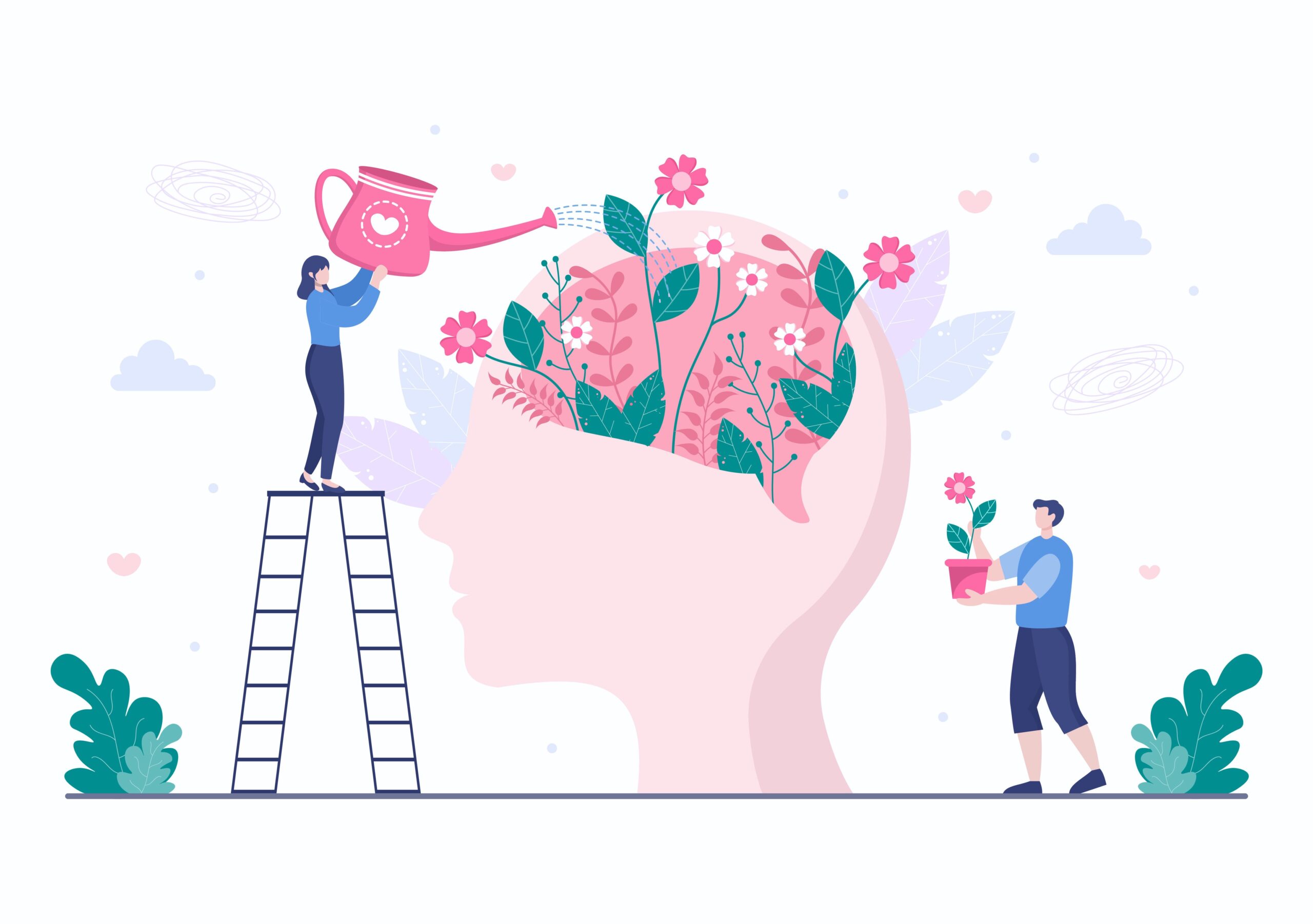Resilience & Mental Health: Building Strength, Not Bitterness

Table of Contents
Understanding Resilience and its Impact on Mental Well-being
Resilience is the ability to adapt successfully to stress, trauma, adversity, tragedy, threats, or significant sources of change. It's not about avoiding hardship, but about bouncing back stronger and wiser from difficult experiences. A strong connection exists between resilience and improved mental well-being. Individuals with high resilience tend to experience:
- Improved coping mechanisms in stressful situations: They possess effective strategies to manage challenges and navigate difficult emotions.
- Enhanced emotional regulation: They can better identify, understand, and manage their emotions, preventing overwhelming feelings of anxiety or depression.
- Increased self-esteem and confidence: Successfully overcoming obstacles fosters a sense of self-efficacy and belief in one's capabilities.
- Greater life satisfaction and overall happiness: Resilience contributes to a more positive outlook and a greater sense of purpose.
- Reduced risk of mental health disorders: By effectively managing stress and adversity, resilient individuals are less prone to developing anxiety, depression, or other mental health issues.
Conversely, a lack of resilience can significantly impact mental health. Without the tools to cope effectively, individuals may experience increased stress, anxiety, and depression, leading to bitterness, cynicism, and a heightened risk of developing more serious mental health challenges. Building mental toughness, fostering emotional strength, and cultivating psychological resilience are crucial for overall well-being.
Practical Strategies for Building Resilience
Building resilience is a proactive process that involves cultivating specific skills and habits. Here are some key strategies:
Cultivating a Growth Mindset
A growth mindset, believing abilities can be developed through dedication and hard work, is fundamental to resilience. It allows you to view setbacks not as failures, but as opportunities for learning and growth. This involves:
- Embracing challenges as opportunities for learning: See obstacles as chances to develop new skills and strategies.
- Focusing on effort and progress, not just outcomes: Celebrate small victories and acknowledge the effort invested, regardless of the final result.
- Viewing failures as stepping stones to success: Learn from mistakes and use them to improve future performance.
- Seeking feedback and using it for improvement: Actively solicit and utilize constructive criticism to enhance your abilities.
- Practicing self-compassion: Treat yourself with kindness and understanding, especially during challenging times.
Building Strong Social Support Networks
Strong social connections act as a buffer against stress and adversity. Nurturing supportive relationships is vital for building resilience. This includes:
- Connecting with family and friends: Lean on your support system during difficult times.
- Joining support groups or communities: Connect with others facing similar challenges.
- Seeking professional help when needed (therapy, counseling): Don't hesitate to seek professional guidance for emotional support and coping strategies.
- Nurturing meaningful relationships: Invest time and effort in building and maintaining strong bonds with loved ones.
- Communicating openly and honestly with loved ones: Share your feelings and experiences with trusted individuals.
Practicing Self-Care
Self-care is not selfish; it's essential for building resilience. Prioritizing your physical and mental health provides the foundation for navigating challenges effectively. This entails:
- Prioritizing sleep, nutrition, and exercise: Maintain a healthy lifestyle to support both physical and mental well-being.
- Engaging in enjoyable activities (hobbies, mindfulness): Make time for activities that bring you joy and relaxation.
- Setting healthy boundaries: Learn to say no to commitments that overwhelm you.
- Managing stress through relaxation techniques (meditation, yoga): Incorporate stress management techniques into your daily routine.
- Seeking professional guidance for mental health concerns: Don't hesitate to seek professional help if you are struggling with your mental health. Utilizing stress management techniques and engaging in regular self-care strategies provides crucial mental health support.
Recognizing and Addressing Bitterness
Bitterness often stems from unresolved trauma or negative experiences. It's a corrosive emotion that can significantly impact mental and physical health. Overcoming bitterness requires:
- Identifying the root causes of bitterness: Understanding the source of your bitterness is the first step towards healing.
- Challenging negative thought patterns: Replace negative thoughts with more positive and realistic ones.
- Practicing self-compassion and forgiveness: Forgive yourself and others involved in the hurtful experiences.
- Seeking professional guidance (therapy, counseling): A therapist can provide tools and strategies for emotional healing and trauma recovery.
- Focusing on positive self-talk and affirmations: Replace negative self-talk with positive affirmations to boost self-esteem and resilience. Utilizing forgiveness techniques is crucial in this process.
Conclusion
Building resilience is a journey, not a destination. By understanding the link between resilience and mental health, and actively implementing the strategies discussed, you can cultivate inner strength, overcome challenges, and build a life filled with purpose and joy, rather than bitterness. Remember, building resilience isn’t about avoiding setbacks; it's about developing the mental and emotional fortitude to navigate them successfully. Start building your resilience today and experience the transformative power of mental well-being. Invest in your mental health and learn more about improving your resilience!

Featured Posts
-
 Experience Michael Kors Jet Set Luxury Now Available On Amazon Featuring Suki Waterhouse
May 20, 2025
Experience Michael Kors Jet Set Luxury Now Available On Amazon Featuring Suki Waterhouse
May 20, 2025 -
 Plyuschenko Sikharulidze Kuznetsova Chem Esche Zanimayutsya Znamenitye Figuristy
May 20, 2025
Plyuschenko Sikharulidze Kuznetsova Chem Esche Zanimayutsya Znamenitye Figuristy
May 20, 2025 -
 The Us Typhon Missile System Implications For Regional Security
May 20, 2025
The Us Typhon Missile System Implications For Regional Security
May 20, 2025 -
 Suki Waterhouses Head Turning Met Gala 2025 Tuxedo Dress
May 20, 2025
Suki Waterhouses Head Turning Met Gala 2025 Tuxedo Dress
May 20, 2025 -
 Latest Rain Chances Precise Timing For On And Off Showers
May 20, 2025
Latest Rain Chances Precise Timing For On And Off Showers
May 20, 2025
Latest Posts
-
 3 1
May 21, 2025
3 1
May 21, 2025 -
 Serie A Lazio Fight Back For Draw Against Juventus
May 21, 2025
Serie A Lazio Fight Back For Draw Against Juventus
May 21, 2025 -
 Late Drama As Lazio And 10 Man Juventus Share Points
May 21, 2025
Late Drama As Lazio And 10 Man Juventus Share Points
May 21, 2025 -
 10 Man Juventus Held To Draw By Lazio In Serie A Thriller
May 21, 2025
10 Man Juventus Held To Draw By Lazio In Serie A Thriller
May 21, 2025 -
 Lazios Late Goal Secures Draw Against Reduced Juventus
May 21, 2025
Lazios Late Goal Secures Draw Against Reduced Juventus
May 21, 2025
